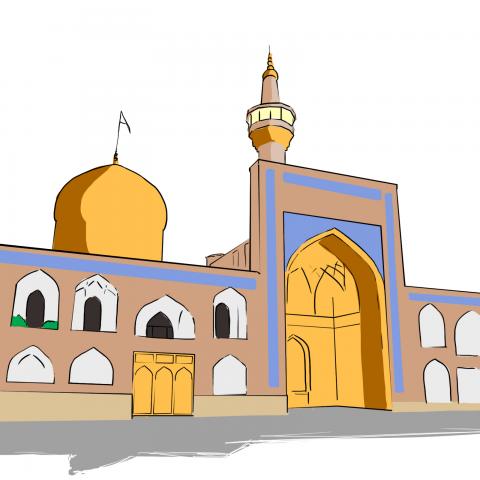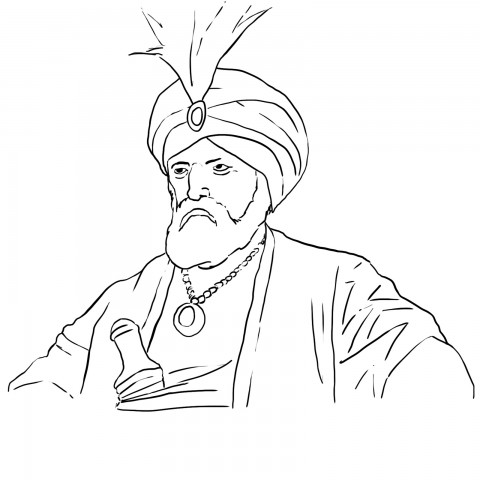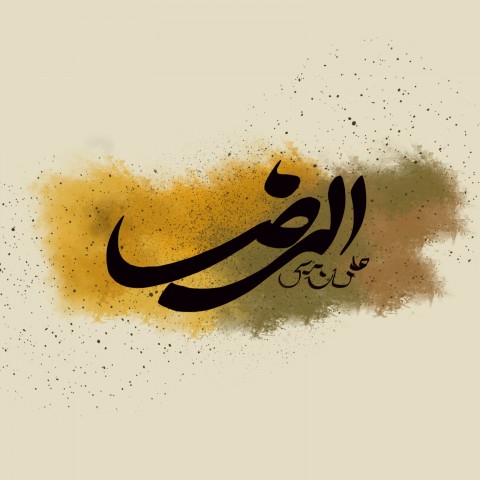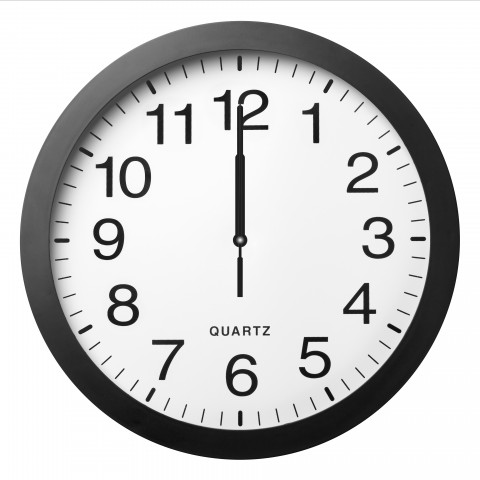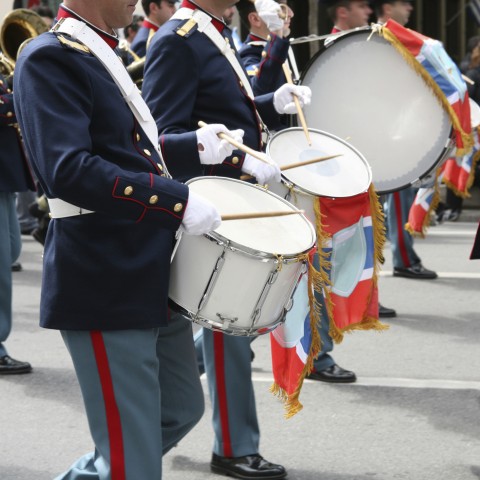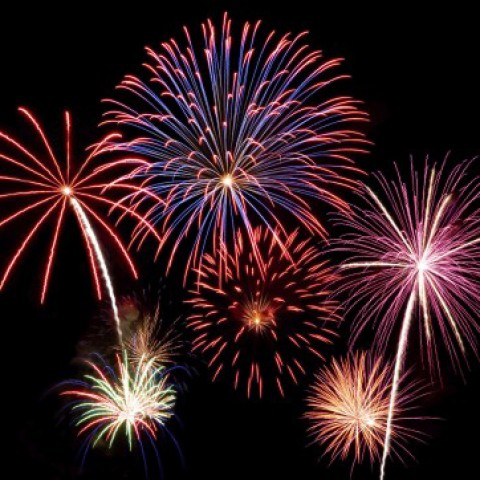
Each year, Shia Muslims remember and mourn the Martyrdom of Imam Reza in Iran. This was a great tragedy for Shia Muslims of the time, and the effects of Imam Reza’s death are still felt today.
In this article, you’ll learn a little about the history behind Imam Reza’s Martyrdom Anniversary, and how it affects Iranian culture today.
At PersianPod101.com, we aim to make every aspect of your language-learning journey both fun and informative. Let’s get started!

1. What is Imam Reza’s Martyrdom Anniversary?
On the anniversary of Imam Reza’s martyrdom, Shia Muslims deeply mourn the death and supposed murder of Imam Reza, also known as Ali Alridha.
Serving as the eighth Shia Imam from 799 A.D. to 818 A.D., following the death of his father, Imam Reza held great influence over the Abbasid Empire. So much, in fact, that he was due to take on the position of the new Caliph, replacing the current Caliph of the time.
But this current Caliph felt uncomfortable and even threatened by Imam Reza’s influence and power within the society. Many Shia Muslims today hold that this fear drove him to murder Imam Reza via poison.
Imam Reza’s murder took place in the midst of a time of hardship for Shia Muslims. Shiite revolts were rampant, and Imam Reza’s position as the new Caliph was meant to help assuage and put a stop to these problems. Unfortunately, Imam Reza didn’t live to fulfill this goal, and each year, the Shia Muslims in Iran mourn this.
2. When is the Imam Reza Martyrdom Anniversary?
The date of the Martyrdom of Imam Reza commemoration varies each year on the Gregorian calendar, taking place on the twenty-ninth or thirtieth day of the Islamic month of Safar. For your convenience, here’s a list of this holiday’s date for the next ten years:
- 2019: October 29
- 2020: October 17
- 2021: October 7
- 2022: September 26
- 2023: September 15
- 2024: September 4
- 2025: August 24
- 2026: August 14
- 2027: August 3
- 2028: July 22
3. Traditions for the Anniversary of Imam Reza’s Martyrdom
As mentioned earlier, the anniversary of the Martyrdom of Imam Reza is a day of mourning.
In general, Shia Muslims tend to visit the shrine of Imam Reza in Mashhad on this day. The Imam Reza shrine is one of the most significant sites in Iran, and it’s common to find many people here in honor of Imam Reza.
4. Mashhad
Mashhad is the city in which Imam Reza was buried after his death. At the time, this city was just a village inside Khorasan Province; it was named Mashhad to reflect the man buried there, and the tragedy that caused his death. Mashhad translates to “the place of martyrdom.”
Because the shrine of Imam Reza is located here, Mashhad has become a massive tourist destination. While Shia Muslims visit this shrine by the millions as part of their mourning, it’s not uncommon to find travelers and tourists visiting this city as well.
There are a few more fascinating things about Mashhad that draw much tourist attraction:
- It holds the tomb of Ferdowsi, a poet.
- It’s the main hub of leather production in Iran.
- It’s home to the “Charm Mashhad” company.
5. Vocabulary to Know for the Martyrdom of Imam Reza
Here’s some Persian vocabulary you should know for the commemoration of the Martyrdom of Imam Reza:
- امام هشتم (emaam-e hashtom) — The eighth Imam
- اهل بيت (ahl-e beit) — Ahlolbeit
- هارون (haaroon) — Haroon
- مأمون (ma’moon) — Mamoon
- خاندان عبّاسى (khaandaan-e abbasi) — Abbasi family
- امام رضا (emaam rezaa) — Imam Reza
- خلافت (khelaafat) — Caliphate
- ولايتعهدى (velaayat-e ahdi) — Succession
To hear each of these vocabulary words pronounced, and to read them alongside relevant images for enhanced comprehension, be sure to visit our Martyrdom of Imam Reza word list!
Final Thoughts
The death of the eighth Shia Imam, Ali Alridha, is considered a tragedy by Shia Muslims. The day on which they mourn and commemorate the martyrdom of Imam Reza is one of the most significant holidays in Iran.
What are your thoughts on this day of commemoration and the history behind it? Does your country have a special day to mourn or remember the death of a beloved figure? Let us know in the comments!
Learning about the history and culture of a country may be one of the most fascinating and enriching aspects of mastering its language. If you’re interested in learning more cultural information about Iran, you may want to check out the following pages on PersianPod101.com:
- What’s Your Favorite Iranian Food?
- 4 Reasons Why Persian Slang Words Will Make You Fluent
- Essential Idioms That Will Make You Sound Like a Native Speaker
- Tourist Attractions in Iran
- How to Post in Perfect Persian on Social Media
At PersianPod101.com, it’s our goal to make language-learning simple and as painless as possible. We provide tons of free lessons, vocabulary lists, and blog posts on both Iranian culture and the Persian language. Get started by creating a free lifetime account today!
Happy Persian learning!





